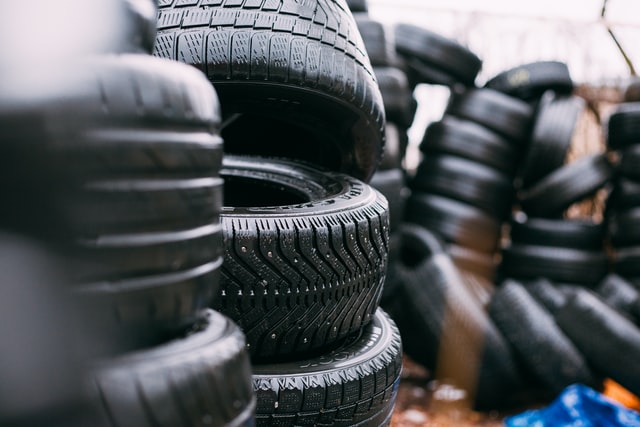When it comes to the tyres on our cars, many of us may not be immediately sure what kind our cars came with and what that means for driving in certain conditions. From summer and winter tyres to the ease of using all-season tyres, all the way through to specialised types like 4×4 and energy-saving tyres, there are plenty to choose from and to help you make sense of the market, we’ve put together a guide to some of the most common and popular tyre types for your car, below.
Summer
In the UK, most vehicles bought new from a dealership are sold with Summer tyres and as a result, most of us are driving around on Summer tyres all year round. Even when tyres need replacing, we tend to lean towards replacing them like-for-like rather than switching out with an alternative. Summer tyres are exactly what the name suggests – tyres designed for use in the Summer, or in temperatures above 7-10 degrees celsius. Generally, these tyres work best in wet or dry conditions with higher temperatures, and while they are still usable over Winter, they offer lower performance and control, with braking distances even thought to double in icy or snowy conditions, making driving more dangerous.
Winter
Winter tyres are designed specifically to handle cold, icy and snowy conditions with improved control and performance compared to Summer alternatives. Made from a compound that performs better at lower temperatures, they are also given unique tread patterns that grip better on wet, icy and snowy roads. The tread works in an unusual way – the wider channels both disperse slush and water, and hold onto snow which provides a better grip than the rubber on its own. Generally, winter tyres make for a noisier drive than summer or all-season alternatives, but this noise is often made up for in improved performance and safety.
All-Season
All-season tyres are a great compromise for those who don’t want to switch out their tyres every couple of seasons. The unpredictability of the UK weather makes all-season tyres an ideal choice, as they give improved performance in the Summer and Winter. This won’t be quite as good as a winter tyre in Winter or a Summer tyre in Summer, but it offers a balanced, year-round performance. However, it’s worth noting that, while they may prevent you from having to change your tyres during the year, they do lose out when it comes to grip when temperatures dip below freezing or rise above 25-30 degrees Celcius.
Run-Flat
Run-Flat tyres are an incredible creation that are making driving safer all over the UK and beyond. These tyres are specially designed to remain temporarily functional even after a puncture. What this means is that, in the event of a puncture or a drop in tyre pressure, the reinforced sidewalls of the tyre will ensure it remains intact long enough for you to make it home or to a garage to get the tyre replaced. Generally, they can keep going for up to 50 miles following a puncture but must be replaced rather than repaired.
4×4
4×4 tyres are designed to take on rougher terrain and surfaces far more effectively than standard cars, and a lot of this comes down to the tyres. 4×4 tyres typically feature a much deeper, more widely spaced tread that helps to improve grip on muddy, grass, snow and more. Due to the way the grooves are cut, 4×4 tyres can drive over these otherwise slippery terrains without becoming clogged and effectively just spinning.
Energy-Saving
Energy-saving tyres are designed to offer better fuel economy or battery life for electric vehicles due to a specialised design that reduces the rolling resistance against your tyres. This can mean reduced performance in terms of braking distances and grip around corners, but do show a significant difference when it comes to your fuel or energy consumption levels. Most hybrid or electric cars are fitted with these tyres as standard, not least because they help the manufacturer to reach certain efficiency targets when producing and selling their vehicles.
The world of tyres is plentiful and depending on the supplier you use, you could find alternatives like high-performance tyres, low-ride tyres and more. If you have any questions about the best tyres for your car or to book your vehicle in for a service to have your current tyres rotated or checked, feel free to get in touch with a member of our team, today.

